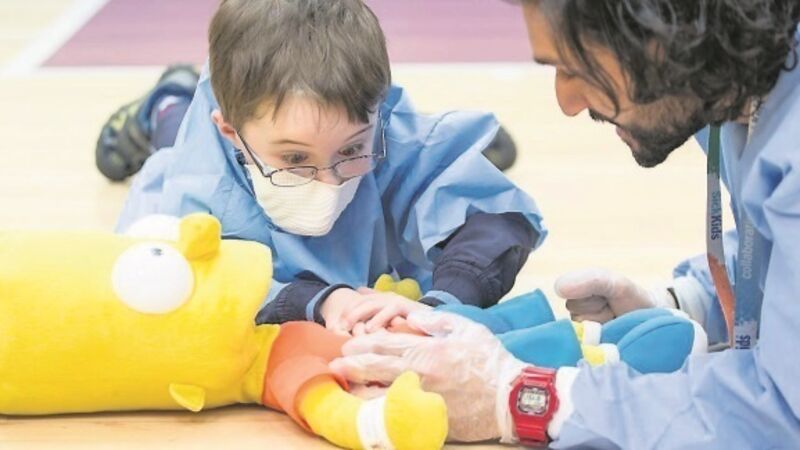VIDEO: Cuddles prescribed as best treatment at UL Teddy Bear Hospital

Medical school students at the University of Limerick yesterday helped ease children’s fears of going to hospital.
More than 500 pupils from seven Limerick primary schools attended UL’s Teddy Bear Hospital where the toys were treated for their ailments.













